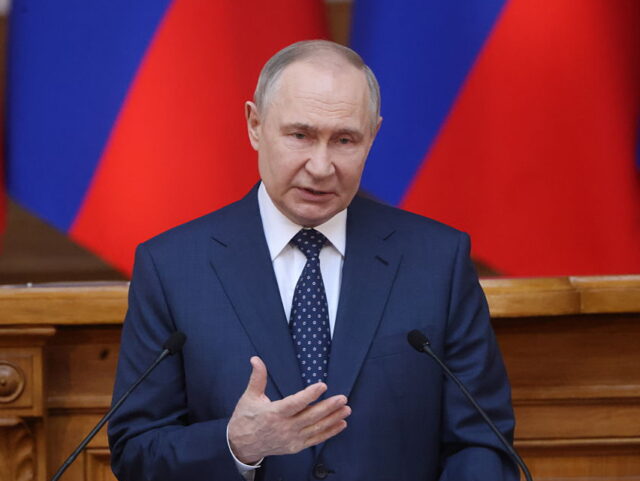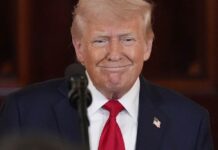Russia’s Vladimir Putin has unilaterally announced a 72-hour “humanitarian” truce with Ukraine to coincide with celebrations to mark of the 80th anniversary of the defeat of Nazi Germany, prompting Ukraine to question why Russia is still dragging its heels on a full 30-day ceasefire.
“The Russian Armed Forces will cease hostilities for humanitarian reasons”, Russia’s Vladimir Putin stated on Monday in a surprise announcement, saying the pause in hostilities would run for 72-hours on the 8th, 9th, and 10th of May. The Kremlin called on Ukraine “to follow this example” and also to lay down arms for the three days as well.
Nevertheless, Moscow wrote in a pretext to ignore the Presidential ceasefire themselves, saying if Ukraine failed to observe the truce, they would retaliate in kind, stating there would be “an adequate and effective response”.
The sudden dovish move by the Kremlin comes hot on the heels of President Donald Trump expressing with increasing force his disappointment and anger at Russia continuing to bomb Ukrainian cities as peace negotiations go on. Already, the ceasefire declaration has been seen as a move by Putin to buy his way back into Trump’s good graces.
President Trump has threatened that if a peace deal is not reached soon — and that may have to be as quickly as this week — the United States will walk away on the table and Washington will start to sanction countries that buy Russian gas and oil, a major export for the Russian economy.
Russian state media said the so-called truce was timed to observe the “Victory in the Great Patriotic War”, which is what the Russian Federation calls what Western nations call Victory in Europe Day, marking the surrender of Nazi Germany in the Second World War. The day is a major event in Russia and marked with military parades and civilian marches of remembrance.
There is even a pejorative in Russian, ‘Pobedobesie‘ or Victory Mania, coined to describe the obsessive cult established around Russia’s self-identity of being the victor of the Second World War created in the Soviet era and latterly revived by President Putin.
This is the second unilaterally announced ceasefire from President Putin in just a month. The last was for Easter day, and just like that one this declaration has been met with scepticism by Ukraine, which cleaves to the position that Russia cynically uses any cessation in hostilities only to prepare for resumed, intensified fighting later.
As it is, the last ‘ceasefire’ saw battle continue unabated and each side accusing the other of having been responsible for the aggression, with mutual claims of thousands of of transgressions. Both sides have cited these alleged incidents as proof that the other is not serious about peace.
Ukraine reacted to Russia’s latest mini-ceasefire proposal, asking why Moscow would not commit itself to the full 30-day ceasefire to allow peace negotiations to take place that had previously been suggested. Ukrainian state media cited their Foreign Minister Andrii Sybiha who said it was cynical of Russia to have a truce just for the sake of a day of military parades.
He is reported to have said: “If Russia truly wants peace, it must cease fire immediately. Why wait until May 8th? If the fire can be ceased now and since any date for 30 days — so it is real, not just for a parade. Ukraine is ready to support a lasting, durable, and full ceasefire. And this is what we are constantly proposing, for at least 30 days”.
Nazi Germany unconditionally surrendered to the allied powers on May 8th 1945, making this may the 80th anniversary of the end of the European part of the Second World War. The war in the Pacific until after the United States dropped nuclear bombs on Japan, ending the war in August 1945. Russia celebrates the surrender of Nazi Germany one day later than Western nations as, given the difference in time zones, it did not come into effect until just gone midnight on the 9th in Moscow.




